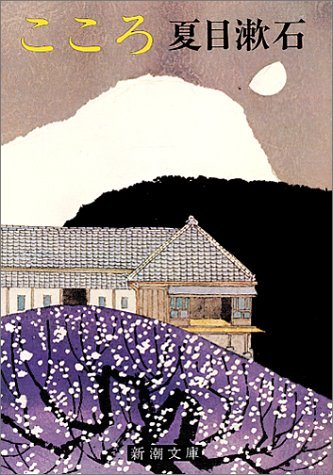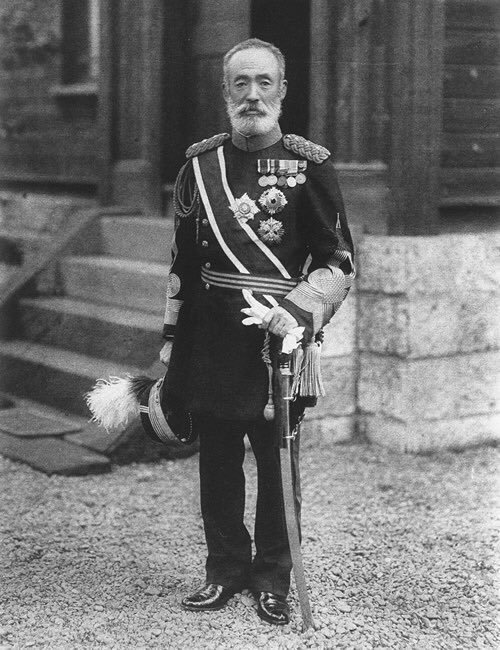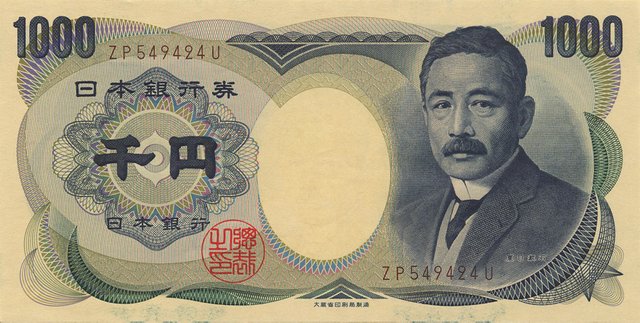Kokoro by Natsume Soseki Book Review; The Illusions of a Young Intellectual and of Friendship

" to bury myself alive under books" - My favourite line of the novel.
Kokoro means heart in Japanese. It also means the heart of things but to me this novel seemed to indicate the lack of a heart in things or perhaps its loss or the realisation that it was never there to begin with. I think it is very common for young literary minded twenty-something year olds (especially if they are not successful) to be for a time totally infatuated with an older, often cynical and often dead writer. I have myself have had such feelings towards George Orwell sometimes. This cynical writer/intellectual then becomes a sort of a father figure who is worthy of respect for his intellect and at the same time who never talks down to the young man(it is usually a man), and the latter may feel, that only the two of them are honest and worthy of consideration. As in this novel this is often accompanied by the presence of a father who the son cannot really respect because compared to the dead writer his father is a simple-minded nobody, an old doddering fool whose life and death (and most crucially whose words) are of no consequence, of no value. The platonic nature of this obsession only makes it more attractive by making it appear pure hearted.
The novel is divided into three parts: 'Sensei and I', 'My parents and I' and 'Sensei and His Testament.' As any self-respecting weeb should know, 'Sensei,' means teacher. In Sensei and I, the university student protagonist who is only ever referred to as 'I' meets his Sensei while going to swim on a beach. A white guy was swiming there as well and this was very unusual back in 1900s Japan. The white guy talked with another Japanese man who was older than the protagonist. Our protagonist then takes an interest in this older Japanese guy who he dubs Sensei and finally after much hesitation approches him and kind of forces his presence of the life of a man who he regarded as wise. This is by far the most interesting part of the novel as the interactions between the young guy and the older(middle-aged I guess) guy are the most interesting. And they kind of reminded me of Mark Twain's 'What is Man?' where a similar discourse happens between an idealistic young man and a cynical old man (I can only picture this as Mark Twain himself talking to me in my mind). What makes Kokoro different from What is man? of course is that in Kokoro's case the characters are not just two stand-ins for the author and the reader to self-insert to, they have their own back stories which is what the next two parts of the book are of. Sensei is also married to a very beautiful woman who obviously loves him and yet Sensei seems to be apprehensive about human beings in general and lives a life in relative seclusion with his wife until this young admirer of his barges into his life and home. Sensei warns the young admirer not to have high expectations about Sensei because he will without a doubt disappoint him but this doesn't dissuade our protagonist infact he becomes only more insistent on knowing what formed Sensei's mindset.
In 'My parents and I' the protagonist goes back to the countryside leaving Tokyo where the university and sensei are because his father is dying. The protagonist is not outright dismissive of his father but it is clear that he doesn't consider his father a source of knowledge. When his father comments on how he is happy to have a child who has gone to university, the protagonists shots back by saying that university graduates are dime a dozen, to which the father replies that he doesn't understand how it feels to be able to say that his son is a graduate. And more crucially when the protagonist learns that his Sensei is in dire danger he leaves his father in his death bed without any hesitation. Another noteworthy point made in this novel is also made through a disagreement between the protagonist and his older brother about who will look after their mother. Obviously neither of them want to do it and try to push the responsibility to each other showing the shallowness of familial bonds.
Throughout this review I have made it sound that for the protagonist Sensei is nothing more than idol or a stand-in for a father-figure or somesort of rolemodel to fashion himself afterwards. I still think that those are an harsh but accurate assesement but at the same time I also believe, as I have hinted in earlier and stated in the title, that he was longing for some sort of friendship deeper than love. The final section of the book is disappointing and insightful because it was meant to convey dissapointment. Sensei at last relents to let his admirer know the truth about him and reveals to the protagonist that he too once had an older friend who he admireda, he refers to this older friend as 'K.' He reveals this to the protagonist by sending him a very long letter which consists of the majority of the last part of the book. I don't want to spoil the events that happen in this part but let me warn you that it is boring. Gone are the crude but direct social commentaries of the first part, the subtle commentaries of the second part and all that's left is a simple story of betrayal and guilt that has been told a thousand times and over - please don't be that pedant asking me to give a thousand and one examples - it's the internet so I need to make such disclaimers. It's not like I don't get Soseki's point - as Japan industrialized it was just like a previously poor man building a mansion, everyone's true character suddenly became clear. Spoilers ahead (this was published back in 1914 but if you haven't read it is still a major spoiler)---------> Sensei declares his wish to commit suicide following in line with General Nogi's suicide but in the end it was not because of K's suicide or because of his guilt over betraying K but rather for another reason that the young protagonist wouldn't be able to understand because he is part of the new generation -- the other country that was the past was coming to an end and I speculte(because it is never made clear) that the reason that he decided to kill himself (although we never get to know whether he goes through with it) is that he realized that the old lies were just going to be replaced with new lies and that only selfishness stretched back from the past into the future.
There are two translations of this novel: The one by Penguin and the one by Edwin McClellan. I read the second one by McClellan and there isn't anything wrong with it. I have not read the one by Penguin but I have read some reviews saying that it is inferior to the original translation by McClellan although this may be just because the McCleccan translation came first and so is considered to be 'canon' I see nothing wrong with the McClellan so I would advise readers to check it rather than the Penguin one.
I give this book a 3 out of 5. Although thematically sound it becomes boring from the second part onwards and the third part is predictably the most boring because by making a mystery box out of Sensei's past and hyping it up in the first part it sets out the reader for dissapointment. Although in its defence it could be argued that Sensei's story is bound to be dissapointing because he relates to the protagonist why he is a failure - but that still doesn't excuse it from being boring to read.

General Nogi's sucide revitalizes an interest in seppuku, ritualized suicide by samurais. I know it's the intention but he does look dignified.

Out of print 1000 Yen bank-note with Natsume Soseki